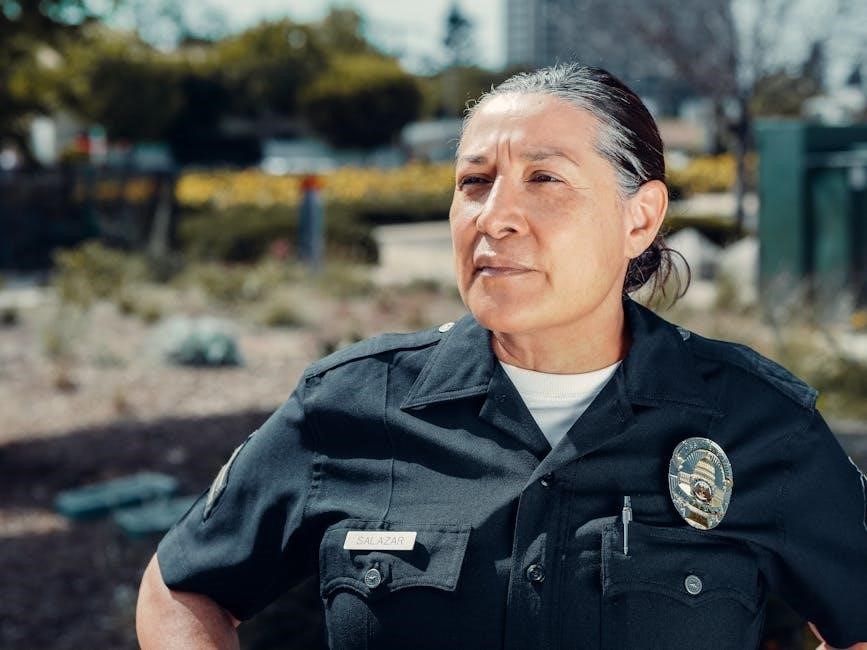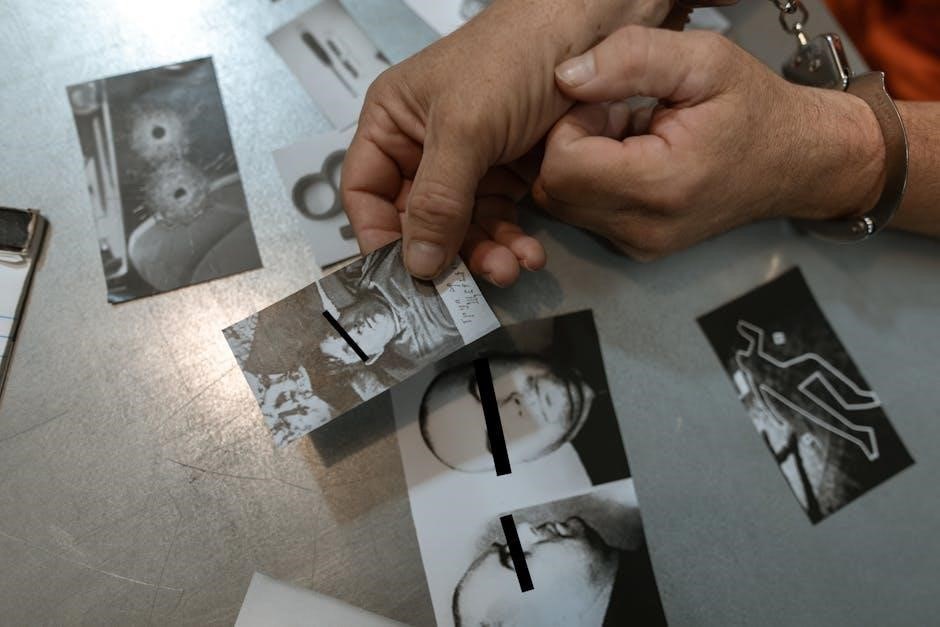creed of the noncommissioned officer pdf
The creed of the noncommissioned officer pdf is a document outlining responsibilities and standards of conduct for noncommissioned officers, serving as a guide for their daily actions and decisions as leaders of soldiers always.
Understanding the Role of a Noncommissioned Officer
The role of a noncommissioned officer is multifaceted and crucial to the functioning of the military. According to the creed of the noncommissioned officer pdf, noncommissioned officers are leaders of soldiers, responsible for guiding and directing their teams to achieve mission objectives. They are expected to possess a high level of professionalism, expertise, and leadership skills, and to conduct themselves in a manner that brings credit to their unit and the military as a whole. Noncommissioned officers are also responsible for mentoring and developing junior soldiers, and for providing guidance and counsel to their peers. They are the backbone of the military, providing the leadership and expertise necessary to accomplish the mission. By understanding the role of a noncommissioned officer, one can appreciate the importance of the creed and its significance in shaping the behavior and actions of these leaders. The creed provides a framework for noncommissioned officers to follow, outlining the responsibilities and standards of conduct expected of them.
The Creed’s Significance in the Army
The creed is essential to the army’s structure and function, guiding noncommissioned officers’ actions and decisions always effectively.
Key Principles of the Noncommissioned Officer Creed
The creed of the noncommissioned officer pdf outlines key principles that guide the actions and decisions of noncommissioned officers, including professionalism, leadership, and responsibility.
These principles are essential to the effective functioning of the army and are expected to be upheld by all noncommissioned officers.
The creed also emphasizes the importance of loyalty, duty, and respect, and provides a framework for noncommissioned officers to make decisions and take actions that are in the best interests of the army and their fellow soldiers.
Overall, the key principles of the noncommissioned officer creed are designed to promote a culture of excellence and accountability within the army, and to ensure that noncommissioned officers are equipped to lead and serve with integrity and professionalism.
The creed is an important part of the army’s culture and is expected to be memorized and upheld by all noncommissioned officers.
It is a powerful symbol of the army’s values and principles, and serves as a reminder of the importance of leadership, responsibility, and professionalism in the military.
The key principles of the creed are essential to the army’s success and are expected to be upheld by all noncommissioned officers at all times.

Responsibilities and Standards of Conduct
Noncommissioned officers uphold high standards of conduct and responsibility always ensuring integrity and accountability in their actions and decisions as leaders.
Living by the NCO Creed 24/7
Living by the NCO Creed 24/7 is a principle that guides noncommissioned officers to embody the creed’s values and principles at all times, both on and off duty. This means upholding the highest standards of integrity, accountability, and professionalism in every aspect of their lives. By doing so, noncommissioned officers demonstrate their commitment to the creed and set a positive example for their fellow soldiers; The ability to live by the NCO Creed 24/7 requires a deep understanding of the creed’s principles and a strong sense of personal responsibility. It also involves being mindful of one’s actions and decisions, and ensuring that they align with the creed’s values. By living the creed 24/7, noncommissioned officers can build trust, credibility, and respect with their fellow soldiers, and contribute to a positive and effective military community. This principle is essential for noncommissioned officers to become effective leaders and role models.

History of the NCO Creed
The creed originated at Fort Benning, Georgia, and was formalized into an official Army publication, shaping the noncommissioned officer’s role and responsibilities always effectively online.
Evolution of the Creed Over Time
The creed of the noncommissioned officer has undergone significant changes over the years, with updates and revisions made to reflect the evolving role and responsibilities of noncommissioned officers in the military.
The creed has been shaped by the experiences and feedback of noncommissioned officers, as well as changes in military doctrine and policy.
As a result, the creed has become a dynamic and living document that continues to guide and inspire noncommissioned officers in their daily actions and decisions.
The evolution of the creed over time is a testament to the commitment of noncommissioned officers to upholding the highest standards of professionalism and leadership.
The creed remains an essential part of military training and education, and its principles and values continue to be studied and applied by noncommissioned officers around the world.
The ongoing evolution of the creed ensures that it remains relevant and effective in guiding the actions and decisions of noncommissioned officers, both on and off the battlefield.

Importance of the Creed in the Marine Corps
The Marine Corps relies on the creed to guide noncommissioned officers in leadership roles and responsibilities always effectively.
Noncommissioned Officers as Leaders of Soldiers
Noncommissioned officers play a crucial role as leaders of soldiers, guiding and directing them in various military operations and activities. They are responsible for training, mentoring, and evaluating soldiers to ensure they meet the required standards. As leaders, noncommissioned officers must demonstrate a high level of professionalism, integrity, and competence, setting a positive example for their subordinates to follow. The creed of the noncommissioned officer pdf emphasizes the importance of leadership and the responsibilities that come with it. Noncommissioned officers must be able to make sound decisions, communicate effectively, and motivate their teams to achieve their objectives. They are also expected to uphold the values and principles of the military, promoting a culture of discipline, respect, and teamwork. By living up to these expectations, noncommissioned officers can inspire confidence and trust in their soldiers, fostering a positive and productive command climate. The creed serves as a reminder of the noncommissioned officer’s commitment to leadership and service.

Core Values and Principles of the Creed
Core values and principles guide noncommissioned officers’ actions and decisions always with integrity and professionalism in their daily duties and responsibilities.
Carrying Out Orders and Obeying Decisions
Noncommissioned officers are expected to carry out orders and obey decisions made by their superiors, demonstrating their commitment to the chain of command and the creed’s principles.
They must also be able to make sound decisions and take initiative when necessary, while still adhering to the guidelines set forth by their superiors and the creed.
By doing so, noncommissioned officers can ensure that their actions and decisions align with the core values and principles of the creed, ultimately contributing to the success of their unit and the organization as a whole, every day.
This requires a high level of discipline, responsibility, and professionalism, as well as the ability to work effectively in a team environment and communicate clearly with others, always following the creed.
Noncommissioned officers must be able to balance their own judgment and initiative with the need to follow orders and obey decisions, demonstrating their ability to lead and follow effectively, as outlined in the creed of the noncommissioned officer pdf.
on the Creed of the Noncommissioned Officer
The creed of the noncommissioned officer pdf serves as a guiding document for noncommissioned officers, outlining their responsibilities and standards of conduct.
By following the principles and values outlined in the creed, noncommissioned officers can demonstrate their commitment to their unit and the organization, and uphold the highest standards of professionalism and leadership.
The creed is a vital tool for noncommissioned officers, providing them with a clear understanding of their role and responsibilities, and serving as a reminder of the importance of their position.
Ultimately, the creed of the noncommissioned officer pdf is a testament to the dedication and professionalism of noncommissioned officers, and their unwavering commitment to serving their country and upholding the values of their organization.
The creed will continue to play a vital role in shaping the actions and decisions of noncommissioned officers, and will remain an essential part of their training and development, as outlined in the creed of the noncommissioned officer pdf, every day.

